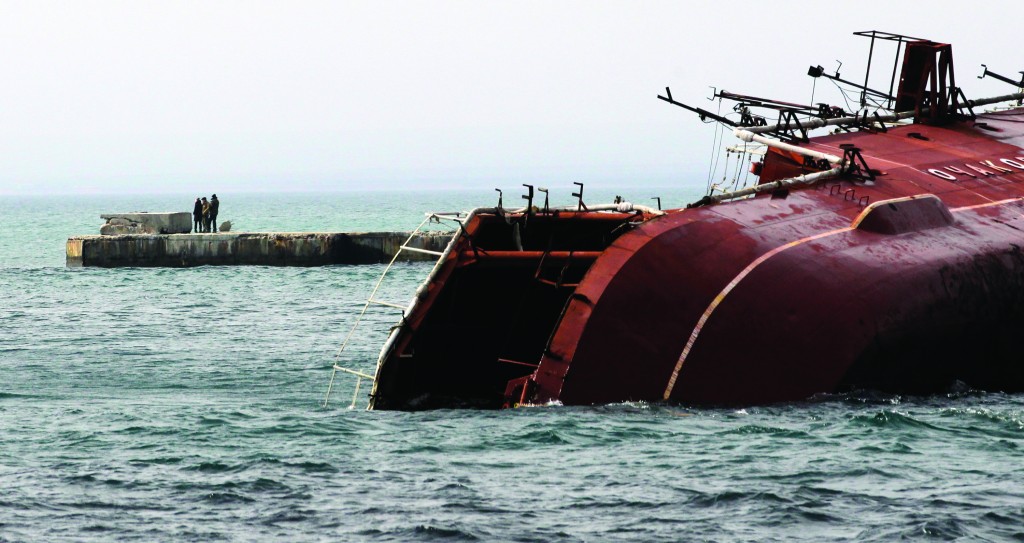Crimea Votes to Join Russia, Obama Orders Sanctions

Crimea’s parliament voted to join Russia on Thursday and its Moscow-backed government set a referendum in 10 days’ time in a dramatic escalation of the crisis over the Ukrainian region that drew a sharp riposte from President Barack Obama.
Obama ordered sanctions on those responsible for Moscow’s military intervention in Ukraine, including bans on travel to the United States and freezing of their U.S. assets.
He echoed European Union leaders and the pro-Western government in Ukraine in declaring that the proposed referendum would violate international law.
The sudden acceleration of moves to bring Crimea, which has an ethnic Russian majority and has effectively been seized by Russian forces, formally under Moscow’s rule came as EU leaders held an emergency summit groping for ways to pressure Russia to back down and accept mediation.
The EU condemned Russian actions in Crimea as illegal, voiced support for Ukraine’s territorial integrity but took only minor steps suspending talks with Moscow on visas and a new investment pact while warning of tougher steps if there is no negotiated solution within a short period.
In a signal to Moscow, Obama announced plans to punish Russians and Ukrainians involved in what he called “threatening the sovereignty and territorial integrity of Ukraine”. A U.S. official said Russian President Vladimir Putin was not on the list of those to be sanctioned.
“The proposed referendum on the future of Crimea would violate the Ukrainian constitution and violate international law,” Obama told reporters at the White House. “Any discussion about the future of Ukraine must include the legitimate government of Ukraine.”
After talks in Rome, U.S. Secretary of State John Kerry said Foreign Minister Sergei Lavrov was personally delivering proposals to Putin to end the crisis in Ukraine.
“We have agreed to stay in close touch in order to see if there is a way forward to try to get to a negotiating table to get the parties necessary to be able to stabilize this,” Kerry said.
Kerry said the executive order on sanctions signed by Obama on Thursday provided a legal framework for imposing sanctions but also left open the door for dialogue over Ukraine.
The Pentagon meanwhile announced a large-scale air force exercise in Poland which Washington’s ambassador to Warsaw said had been augmented to reassure U.S. allies in the region in the light of the Ukraine crisis.
Stakes Raised
The Crimean parliament voted overwhelmingly on Thursday “to enter into the Russian Federation with the rights of a subject of the Russian Federation.”
The decision, which diplomats said could not have been made without Putin’s approval, raised the stakes in the most serious east-west confrontation since the end of the Cold War.
The vice premier of Crimea, home to Russia’s Black Sea Fleet in Sevastopol, said a referendum on the status would take place on March 16. All state property would be “nationalized”, the Russian ruble adopted and Ukrainian troops treated as occupiers and forced to surrender or leave, he said.
Russian stocks fell and the ruble weakened further after the referendum news. Moody’s ratings agency said the stand-off was negative for Russia’s sovereign creditworthiness.
On the ground, a mission of 35 unarmed military observers from the pan-European Organization for Security and Cooperation in Europe was stopped from entering Crimea by unidentified men in military fatigues when they travelled from the port of Odessa, Poland’s defense minister said.
In Brussels, European Council President Herman Van Rompuy outlined a three stage plan to try to resolve the crisis, while announcing that the EU would sign the political parts of a far reaching agreement with Ukraine before May 25 elections there, and offer the country extensive aid and trade benefits.
Unless Moscow opens negotiations with Ukraine and an international “contact group” soon, the EU would move to travel bans and asset freezes on Russian officials, and boycott a planned June Group of Eight summit in Olympic venue Sochi.
If Russia took action that destabilizes Ukraine further, there would be “grave consequences” for bilateral economic ties, he said, without giving any deadlines. Poland’s prime minister said the EU talks on sanctions had been “stormy”, hinting at frustration at his inability to achieve stronger measures, which require a unanimous decision of all 28 member states.
Military Action
Putin has cited threats to Russian citizens to justify military action in Ukraine, as he did in Georgia in 2008. Far from seeking a diplomatic way out of the present crisis, Putin appears to have chosen to create facts on the ground before the West can agree on more than token action against him.
Ukrainian Prime Minister Arseny Yatseniuk said that Ukraine’s armed forces would act if Russian military intervention escalated any further into Ukrainian territory. “We are ready to protect our country,” he said.
Military experts say Kiev’s small and underequipped forces are no match for Moscow’s superpower might.
This article appeared in print on page 4 of edition of Hamodia.
To Read The Full Story
Are you already a subscriber?
Click "Sign In" to log in!

Become a Web Subscriber
Click “Subscribe” below to begin the process of becoming a new subscriber.

Become a Print + Web Subscriber
Click “Subscribe” below to begin the process of becoming a new subscriber.

Renew Print + Web Subscription
Click “Renew Subscription” below to begin the process of renewing your subscription.






